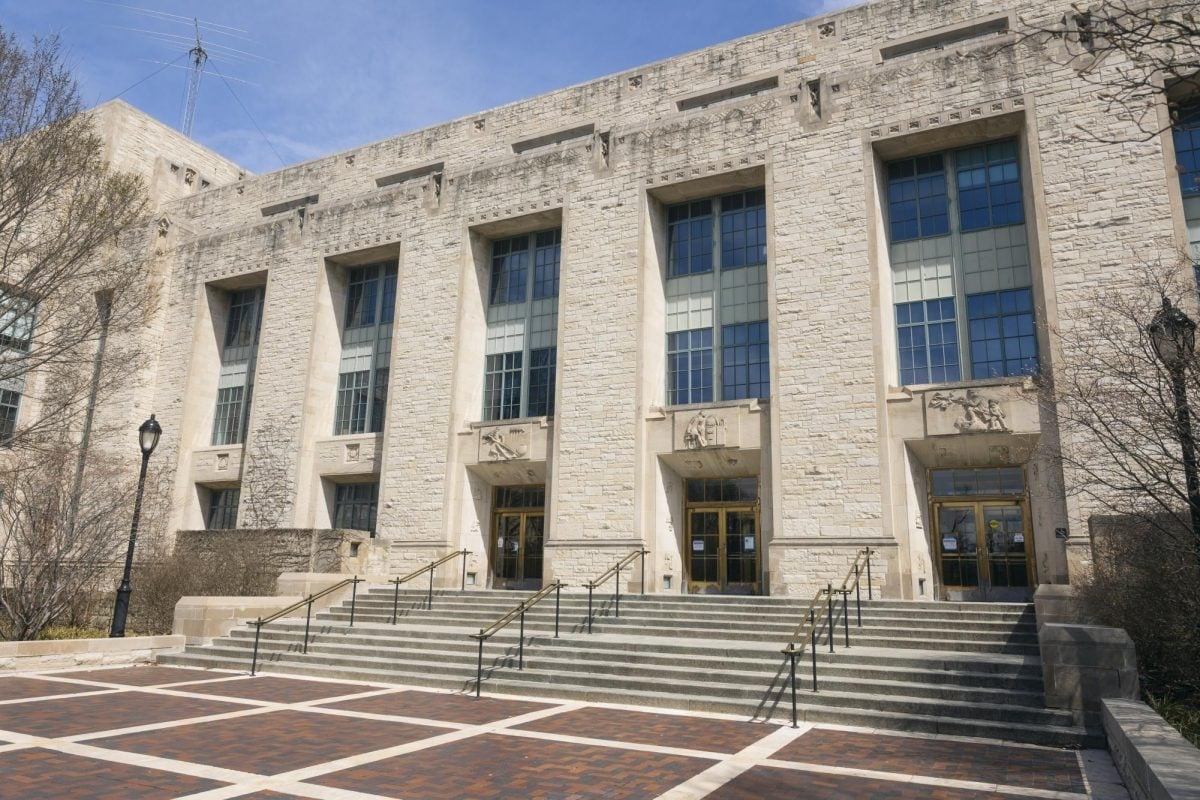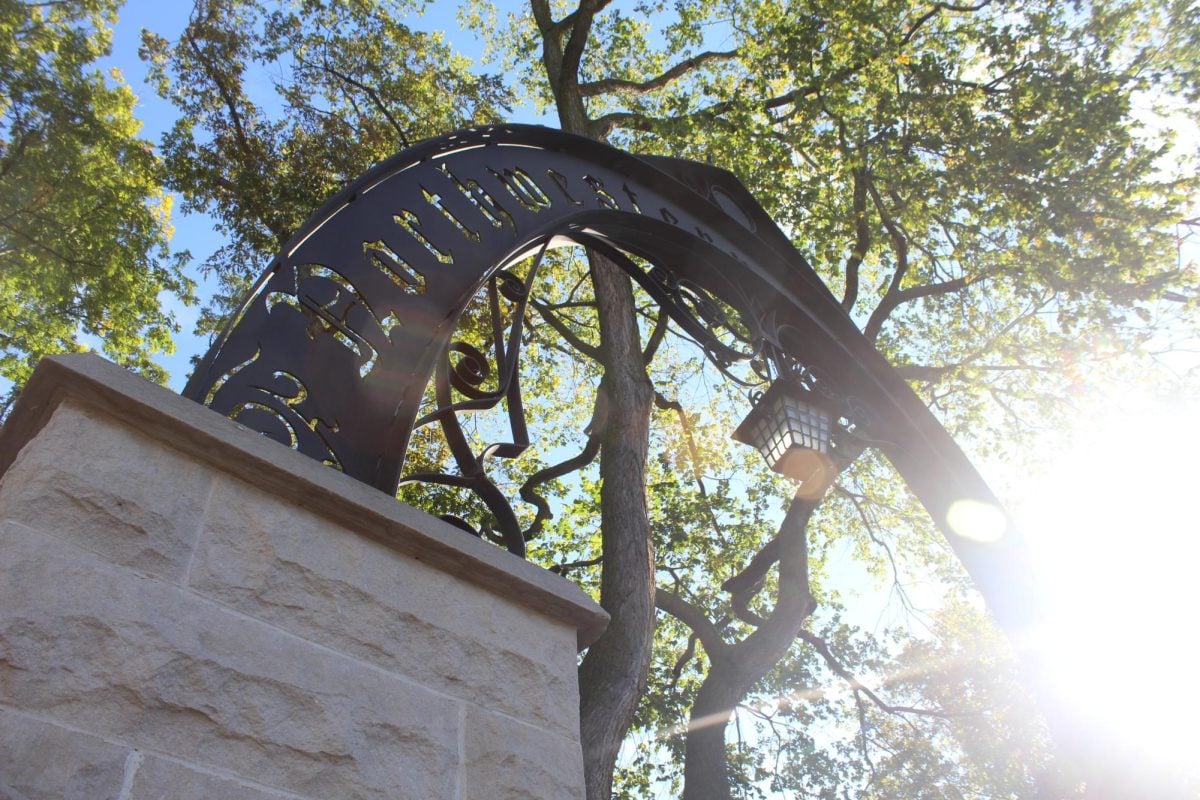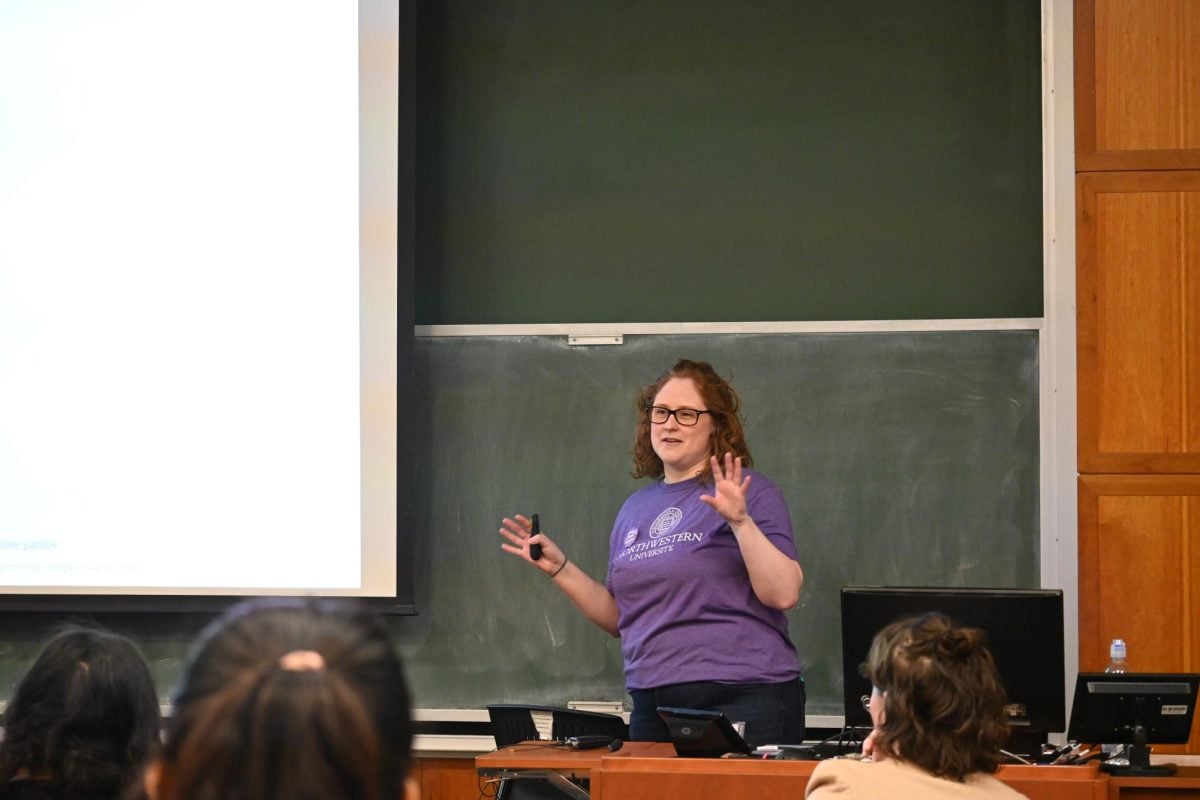The U.S. Supreme Court heard oral arguments Wednesday in the death penalty case of Henry “Hank” Skinner, a Texas man who has been on death row for the past 15 years and whose case the Medill Innocence Project took on 10 years ago.
Four Northwestern alumni who worked on the case traveled to Washington, D.C., for the appearance, which marked the first time the high court has taken up a case involving a “heavy” amount of Innocence Project reporting.
In fact, it was the first time that the Supreme Court has considered a case based on evidence developed by any journalism students, said Prof. David Protess, who heads the Innocence Project.
“Some of our findings were in the briefs that they gave in to the court,” said Gaby Fleischman, Medill ’10. “It’s cool to finally be here and see what has come of everything.”
Skinner, 48, was convicted of murdering his live-in girlfriend, Twila Busby, and her two adult sons in their home on New Year’s Eve 1993. Initial DNA testing proved Skinner was at the scene of the murder in Pampa, Texas.
But additional DNA evidence indicated that he may be innocent. Prosecutors have refused to test all of that evidence, and Skinner is fighting to force them to do so under a civil rights law.
In March, Skinner came within 47 minutes of being executed before learning during his last meal that the Supreme Court had issued a stay.
From a decade of work, 12 NU alumni developed most of the evidence included in the brief filed with the high court.
“We went to Texas for the investigation,” Fleischman said. “We went to speak to the jurors. We went to Pampa where the murders happened and spoke to neighbors and everyone there. And we also went and met Hank.”
According to the brief, Skinner is only asking for the biological DNA evidence to be tested. That means that even if the court sides with Skinner, he will not be freed unless the DNA evidence is tested and found by a court to prove his innocence, Protess said.
The case also could have national implications – the court may use the case to set a national standard regarding the right of convicted defendants to seek DNA testing, he said.
DNA evidence has exonerated 258 convicted felons, according to the Innocence Project’s website.
“Skinner’s victory would guarantee the right under federal civil rights law to conduct the tests. It could mean that countless prisoners will have a chance to prove their innocence,” Protess said. “A defeat would mean the continued incarceration of innocent prisoners.”
A decision will not be announced until February at the earliest. In a hour-long appearance marked by snappy back-and-forth dialogue between the attorneys and the justices, the men and women of the court did not give any indication Wednesday what direction they were leaning.
The court has ruled in favor of defendants on several recent criminal rights issues, with Justice Anthony Kennedy joining the four-member liberal bloc. Though one of defendants’ fiercest advocates on the court, Justice John Paul Stevens, Law ‘47, just retired, his replacement, Justice Elena Kagan, is not expected to change the dynamics of the court.
Protess, who could not attend the hearing due to a family reunion, expressed optimism that the justices would side with Skinner.
“I believe this is the right case at the right time,” he said.
The attending students said they had no idea how the court would rule. But they agreed that seeing their work contribute to a potentially landmark Supreme Court case was reason enough to be proud.
“Just to be here, staring at probably the nine most intelligent people in the United States in court, having them discuss a case that I worked on,” Fleischman said. “It was an experience that I can’t even put into words. It was so surreal.”







